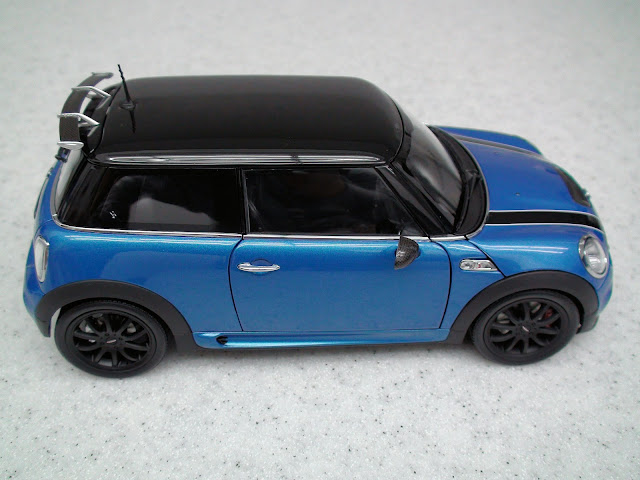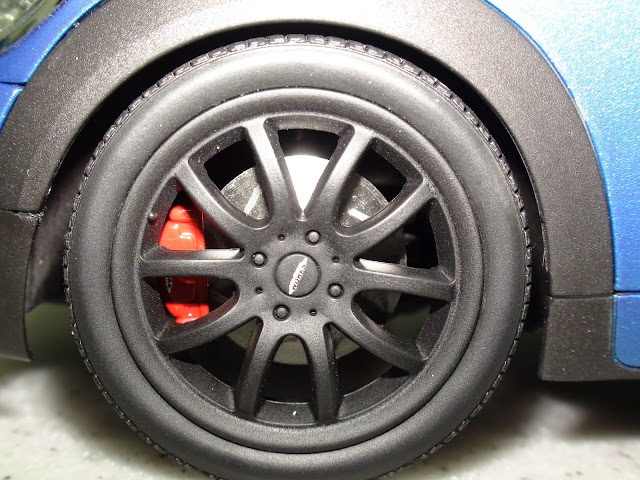Marca - Kyosho
Escala - 1:18
Mini is a British automotive marque owned by BMW which specialises in small cars.
Mini originated as a specific vehicle, a small car originally known as the Morris Mini-Minor and the Austin Seven, launched by the British Motor Corporation in 1959, and developed into a brand encompassing a range of small cars, including the Clubman, Traveller and Moke. The original two-door Mini continued in production until 2000. Development of a successor began in 1995 and the new generation car was launched in 2001. The Mini range has since expanded from the core two-door Hardtop/Hatch to include the Clubman (estate), Convertible and Countryman (crossover).
In 2007, MINI released the JCW tuning kit for the new "R56" version of the car. This new version now being turbocharged as opposed to supercharged, the kit itself is very different from that of the previous Cooper S. Consisting of an uprated induction system, exhaust and ECU remap, this kit ups power 17 bhp (13 kW) to 192 bhp (143 kW). Torque is up 10 nm to 250 nm (270 nm with overboost). Acceleration from 0-100 km/h is now 6.8 seconds, and a top speed of 232 km/h is now possible. Amongst MINI owners and fanatics, this kit is commonly referred to as the "Stage 1 Kit", although this nomenclature has never been officially employed by JCW or by BMW.
In mid-2008, MINI brought out a new addition to the JCW family - the MINI John Cooper Works. This is in fact not another power kit, but a whole new version of the R56 MINI, model code MF91 (MM91 in the Clubman version). This new version - unofficially termed "Stage 2" by some MINI fanatics - comes with three major differences compared to the 192 bhp (143 kW) power kit:
- Maximum power of 155kW (211 bhp) at 6000 rpm, and 260 Nm of torque (280 with overboost. This is achieved by means of a new, uprated turbocharger, larger-bore exhaust and a sportier ECU map. 0-100 km/h time is down to 6.5 seconds (6.8 in the case of the Clubman). Fuel consumption and emissions are also up, however, compared to the 192 bhp (143 kW) kit which has no change compared to the standard 175 bhp (130 kW) Cooper S.
- Electronic limited slip differential (EDLC - Electronic Differential Lock Control). This is infinitely variable between 0% and 50%, as opposed to the permanent 30% of the optional LSD fitted to the R56 MINI Cooper S.
- DTC (Dynamic Traction Control) as fitted as standard on all BMW models nowadays. The MINI John Cooper Works is the first variant of the new MINI to come with DTC which, to date, is not available even as an option on other variants. The main difference between DTC and the extant DSC is the ability to "remap" the parameters for the traction and stability control systems, to allow a sportier drive while still employing these systems at the last minute, without fully deactivating them.
















































































Sem comentários:
Enviar um comentário